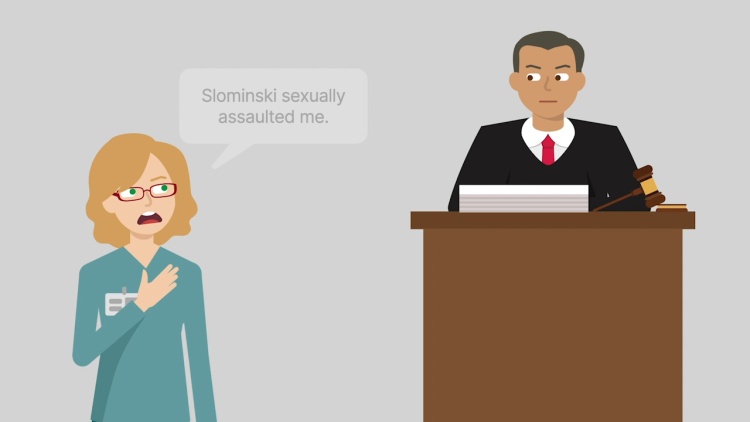Reavis v. Slominski
Nebraska Supreme Court
250 Neb. 711, 551 N.W.2d 528 (1996)
- Written by Nicholas Decoster, JD
Facts
Mary Reavis (plaintiff) worked at a Nebraska dental clinic owned by James Slominski (defendant). Although Reavis was married, Slominski repeatedly fondled Reavis, and eventually the pair engaged in sexual relations. Slominski never physically forced Reavis to have sex. However, Reavis felt obligated to accept Slominski’s advances because she needed her job. Reavis moved away in 1975. In 1988 Reavis again accepted a position in Slominski’s office, on the condition that he leave her alone. In 1991, after an office party, Slominski began kissing Reavis. Reavis initially pushed Slominski away and told him no. When Slominski laughed, however, Reavis walked to his office and engaged in sexual relations, feeling that she had no choice. Reavis later sued Slominski for, among other things, sexual assault based on the 1991 incident. Slominski argued that he was not liable because Reavis consented. Reavis countered that her actions did not constitute consent, or alternatively, that even if they did, such consent was not effective because Reavis lacked mental capacity to consent, partly because of sexual abuse as a child, of which Slominski was not aware. The trial court denied Slominski’s request for a jury instruction on effective consent, and the jury ruled in Reavis’s favor on the sexual-assault claim. Slominski’s motion for a directed verdict was denied. Slominski appealed.
Rule of Law
Issue
Holding and Reasoning (Lanphier, J.)
What to do next…
Here's why 907,000 law students have relied on our case briefs:
- Written by law professors and practitioners, not other law students. 47,100 briefs, keyed to 996 casebooks. Top-notch customer support.
- The right amount of information, includes the facts, issues, rule of law, holding and reasoning, and any concurrences and dissents.
- Access in your classes, works on your mobile and tablet. Massive library of related video lessons and high quality multiple-choice questions.
- Easy to use, uniform format for every case brief. Written in plain English, not in legalese. Our briefs summarize and simplify; they don’t just repeat the court’s language.





